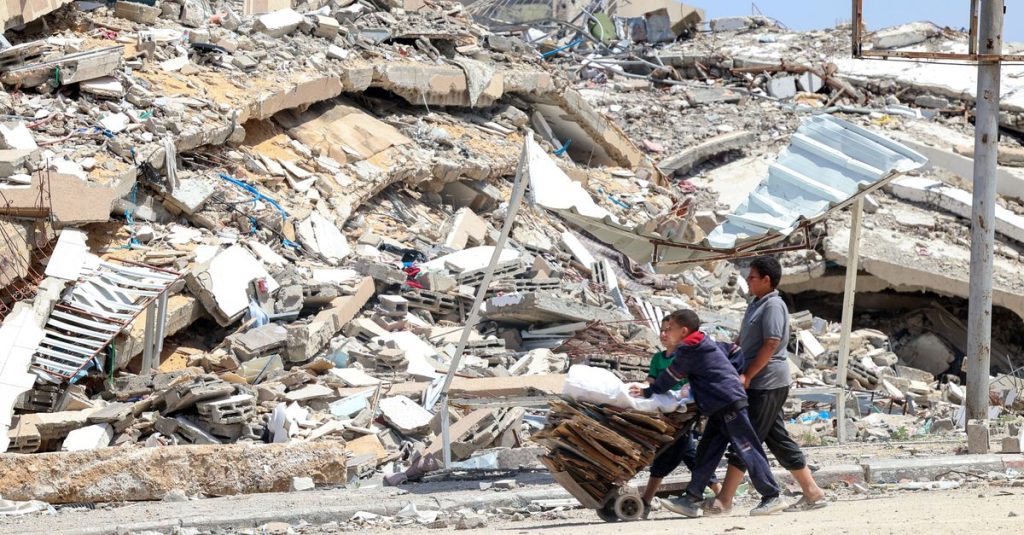A delegation from the Palestinian militant group Hamas was in Cairo meeting with Egyptian mediators to discuss a potential cease-fire with Israel, with reports of progress being made but an Israeli official playing down the chances of a full end to the conflict. The war in Gaza has lasted nearly 7 months, resulting in a dire humanitarian crisis, with a top U.N. official warning of a full-blown famine in northern Gaza. The key question remains whether Israel will agree to end the conflict without achieving its goal of destroying Hamas.
Egyptian and U.S. mediators have reported signs of compromise in recent days, with progress being made on disputed points, though details were not provided. Hamas is calling for a complete end to the war and withdrawal of all Israeli forces from Gaza, while Israel is committed to launching an offensive into Rafah, the southernmost city in Gaza where over 1 million Palestinians are sheltering. There is concern that the war could worsen exponentially without a ceasefire agreement.
The proposed cease-fire plan put forward by Egyptian mediators includes three stages, starting with an immediate six-week cease-fire and partial release of Israeli hostages, eventually leading to an Israeli pullout. The first stage would involve the release of female civilian hostages by Hamas in exchange for Palestinian prisoners held by Israel. Negotiations are ongoing, with hopes that Israel will commit to the proposed framework and send its top negotiators to Cairo to show seriousness about reaching a deal.
The conflict has resulted in over 34,000 Palestinian deaths, widespread destruction, and a humanitarian crisis in Gaza. The war began when Hamas attacked southern Israel, abducting hundreds and killing many civilians. Israel claims that militants still hold around 100 hostages and the remains of more than 30 others. Israeli airstrikes in Gaza have continued, with casualties reported on both sides, including civilians, militants, and children.
As the situation escalates, there are concerns about the potential impact of an Israeli offensive in Rafah, which could put hundreds of thousands of civilians at risk. The United Nations has warned that a significant increase in aid and a cease-fire are essential to prevent further humanitarian catastrophe in Gaza. While Israel has opened new crossings for aid into northern Gaza, there have been challenges with aid distribution, including incidents where convoys were blocked by Israeli settlers and later commandeered by Hamas militants.
Efforts to de-escalate the conflict continue, with discussions between Hamas, Israel, and international mediators ongoing. The situation remains complex and the prospects for a lasting cease-fire are uncertain, with the fate of thousands of civilians hanging in the balance. The international community, including the United Nations and the Biden administration, is closely monitoring the situation and urging all parties to reach a peaceful resolution to the conflict in Gaza.












